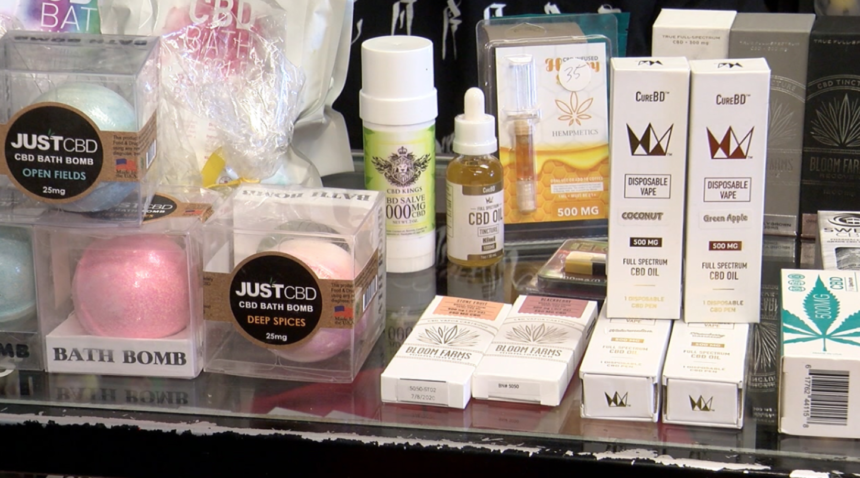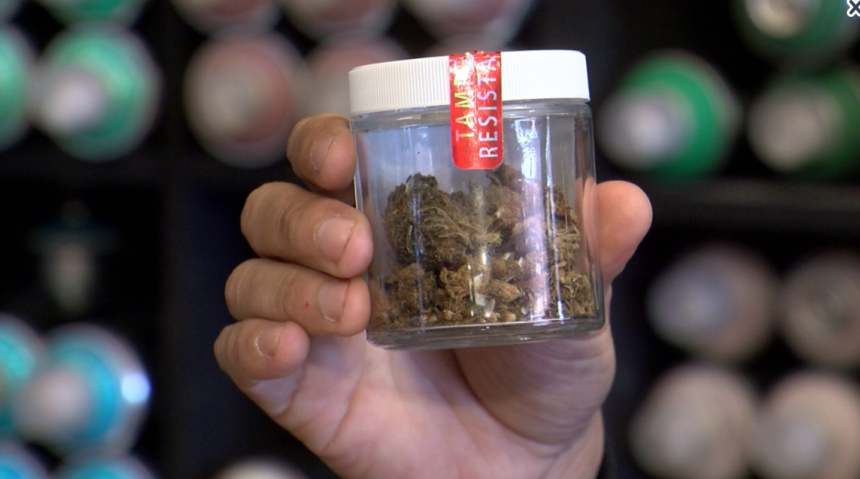CBD oil: What is it and is it legal in Texas?


EL PASO, Texas -- After Texas Governor Greg Abbott signed House Bill 1325 into law in june, "CBD oil sold here" signs have been popping up all over the borderland.
HB 1325 allows for the manufacture, productions and retail of hemp plant, where CBD, or cannabidiol, comes from. But what is it?
The hemp plant and the marijuana plant are virtually the same.
Lee Angers, owner of CBD Holistics on El Paso's westside told ABC-7, "The difference between the two is that marijuana was bred to have very high amount of THC (Tetrahydrocannabinol), THC is what gets you high. They bred down the CBD because CBD can counteract the high. The marijuana plant has high amounts of THC, low amount of CBD and the hemp plant has the opposite."
The Texas Health and Human Services said any CBD product containing .3 percent of THC or less is legal to sell, legal to purchase and legal to consume. It will not get you high.
The farming of hemp just became legal in Texas this summer. That law also made CBD products legal to buy, sell and use. That's why you're seeing so many stores. The state is supposed to license and create a registration process for retailers. The Department of Public Safety will be tasked to do random testing on products, but the rules may not be set until next year.
Depending on the products, CBD is made different ways. To make the just dry flower, usually used in CBD cigarettes, they just cut the flower and hang it to dry. To extract the oil, heat is used on the flower.
You can find CBD products at gas stations, convenience stores and head shops.
Justen Rojas, owner of Bodegas smoke shop on the east side, has been selling CBD products for about seven years.
Rojas said as the popularity continues to grow, he's seen differnt kinds of people come in and by the product, "Literally all walks of life; I've seen nurses, truck drivers, police officers, attorneys."
Products can be sold in different forms including oils, lotions, pills, gummies and even smokeables.
Eica Aguayo has been using CBD oils for over a year to help her sleep.
"It helped my mind kind of shut off and relax, once I went to bed," said Aguayo.
If you'e considering using CBD products you'll want to be sure to make sure they product you're buying is legit. Google the company name, visit their website and look at their reviews.
"In my opinion, the best product possible is one that contains more of the hemp plants then just CBD.," said Angers. "So I would look on the product and see whether its from CBD isolate or whether it’s hemp extract that’s either called full spectrum or broad spectrum."
Full spectrum means the whole hemp plant is used. The hemp plant contains several Cannabinoids, other than just CBD. There is CBG, CBN, CBC, all offering specific benefits per cannabinoids.
"When you have all of the parts of the hemp plant together and you're using it in one product, it's called the 'Entourage Effect'. Every single one of these compounds is better together than they are alone," Angers told ABC-7.
While the product is still legal at the state level, it is not legal when it comes to the federal government. Since no one is certifying the products, what you buy is what you get.
The federal drug administration is working to create a framework to regulate CBD and has sent letters to manufacturers and retailers warning them about touting "significant health benefits" and "potential therapeutic use" of CBD.
With so many claimed benefits, banks are also watching shops.
"It's because our financial banking institutions are carefully watching our website and they will immediately shut us down if we mention any health benefits," Angers told ABC-7. "That has to do with risk, financial risk within the banking institution. It’s hard to explain and that all is tied into the lack of FDA regulations."
The FDA has already sent warning letters to several merchandisers and retailers who list specific health benefits on their websites.
Just recently, the Department of State Health Services held a public hearing relating to hemp products.
According to the DSHS website, "HB 1325 requires the Texas Department of Agriculture (TDA) to first file a state plan to monitor and regulate the production of hemp in Texas, and have that plan approved by the United States Department of Agriculture (USDA) before an agency can create the rules necessary to implement the rest of HB 1325."
